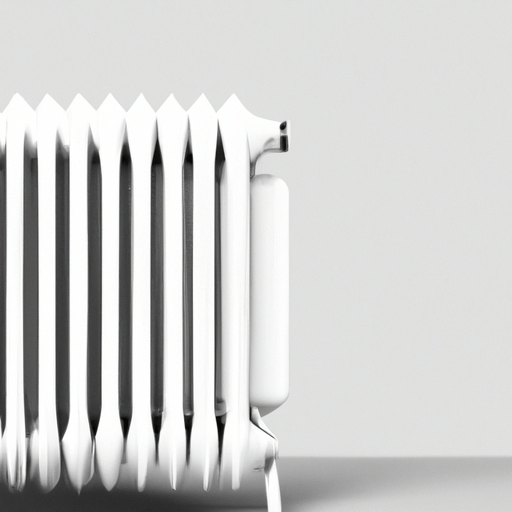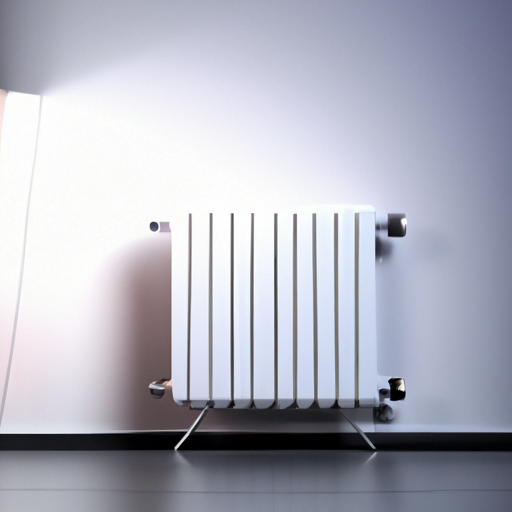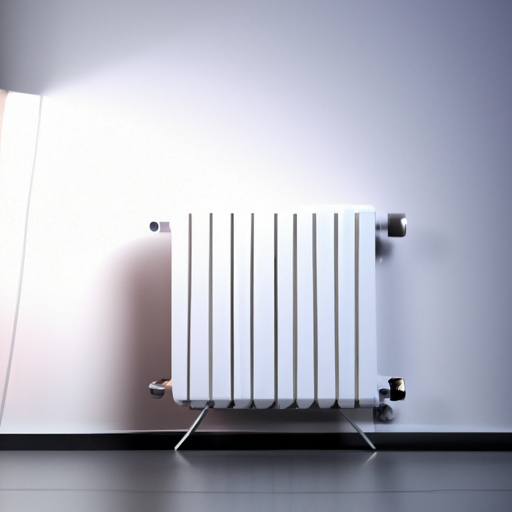So, have you ever thought about living off the grid? You know, disconnecting from the city’s power supply, being self-sufficient, and living in harmony with nature? It might sound like a dream, but with the advancements in technology, it’s becoming more and more achievable. And one key aspect of off-grid living is finding a heating solution that doesn’t rely on traditional fuel sources. That’s where electric radiators come into play.
Electric radiators have been gaining popularity in recent years as an alternative heating option for both on-grid and off-grid homes. With the increasing focus on sustainability and reducing carbon footprints, many people are looking for ways to heat their homes without relying on fossil fuels. Electric radiators offer a clean and efficient solution, as they convert electricity directly into heat.
But are electric radiators really the future of heating? In this article, we’ll explore the benefits and drawbacks of electric radiators and how they can fit into the future of heating. We’ll delve into their energy efficiency, ease of installation, and maintenance. We’ll also discuss the advancements in technology that are making electric radiators more intelligent and controllable. So, if you’re interested in the future of heating and how electric radiators may play a part in it, keep on reading.

Exploring the Future of Heating: Electric Radiators
Electric radiators are a sustainable and efficient heating solution that has gained popularity in recent years. With advancements in technology and a growing focus on renewable energy, electric radiators have the potential to replace traditional heating systems in homes and contribute to a greener future. In this article, we will delve into the benefits of electric radiators, advancements in their technology, their role in off-grid living, their environmental impact, their implications for home design, their future potential, and how to choose and maintain the right electric radiator for your needs.
The Benefits of Electric Radiators
Electric radiators offer several advantages that make them an appealing choice for homeowners. One of the key benefits is their energy efficiency. Unlike traditional heating systems that rely on fossil fuels to generate heat, electric radiators convert electrical energy into heat directly, resulting in minimal energy loss. This efficiency translates into cost savings for homeowners as they consume less energy to achieve the desired level of warmth in their homes.
Another advantage of electric radiators is their cost-effectiveness. Unlike gas or oil-based heating systems that require regular maintenance and servicing, electric radiators have fewer moving parts and do not require the same level of maintenance. Additionally, there is no need for regular fuel deliveries, eliminating the associated costs and inconveniences. Electric radiators are also easy to install, making them a convenient option for homeowners.
Advancements in Electric Radiator Technology
Electric radiator technology has been continuously evolving to enhance user experience and increase efficiency. One significant advancement is the integration of smart thermostats, which allow homeowners to control their radiators remotely and program them to heat rooms based on specific schedules. This level of control enables homeowners to optimize their energy consumption and reduce heating costs.
Another notable development in electric radiator technology is the availability of programmable settings. Homeowners can set different heating schedules for each room, ensuring that only occupied spaces are heated. This zoning capability not only reduces energy wastage but also enhances comfort as each room can be heated to its desired temperature.

The Role of Electric Radiators in Off-Grid Living
Off-grid living refers to living in a self-sufficient manner without reliance on public utilities, such as electricity, water, or gas. Electric radiators play a crucial role in off-grid living as they offer homeowners independence from traditional energy sources. Off-grid homeowners can generate their electricity through solar panels or wind turbines and use electric radiators to heat their homes without relying on the conventional power grid.
Besides providing energy independence, electric radiators contribute to sustainability in off-grid living. With renewable energy options such as solar and wind becoming more accessible and affordable, homeowners can power their electric radiators using clean energy sources. This sustainable approach not only reduces environmental impact but also helps homeowners reduce their carbon footprint.
Electric Radiators and Environmental Impact
Electric radiators have several environmental benefits compared to traditional heating systems. They produce significantly fewer carbon emissions as they do not rely on burning fossil fuels. This reduction in carbon emissions contributes to mitigating climate change and improving air quality. By transitioning to electric radiators, homeowners can play a part in reducing their reliance on polluting energy sources and promoting a cleaner, greener future.
Electric Radiators and Home Design
In addition to their energy efficiency and environmental benefits, electric radiators also offer practical advantages for home design. Many electric radiators are designed to be aesthetically pleasing and can complement various interior styles. With a wide range of finishes and designs available, homeowners have the flexibility to choose radiators that blend seamlessly into their living spaces.
Space-saving designs are another advantage of electric radiators. Unlike traditional heating systems that require bulky boilers or radiators, electric radiators come in sleek and compact sizes. This feature allows homeowners to optimize their living space and use it more efficiently.
Integration with smart home technology is another exciting feature of electric radiators. Homeowners can connect their radiators to a smart home system and control them remotely using mobile applications or voice commands. This integration streamlines the heating process and enhances user convenience.
The Future of Electric Radiators
The future of electric radiators looks promising as advancements in technology continue to pave the way for increased efficiency and control. Energy storage is one area where significant progress is being made. Improved energy storage solutions will enable homeowners to store excess energy generated from renewable sources and use it to power their electric radiators during times of high demand.
Integration with renewable energy sources is another avenue for the future development of electric radiators. As renewable energy becomes more prevalent, electric radiators can tap into these sustainable sources to provide heat. This integration will further reduce dependence on fossil fuels and contribute to a greener energy landscape.
Increased efficiency and control are also anticipated in the future of electric radiators. As technology continues to advance, radiators can become even more energy-efficient and offer more precise heating control options. This development will allow homeowners to fine-tune their heating preferences and achieve maximum comfort while minimizing energy consumption.
Are Electric Radiators the Future?
When comparing electric radiators to traditional heating systems, it becomes clear that electric radiators have several advantages that make them a potential future choice for homeowners. Their energy efficiency, cost-effectiveness, easy installation, and integration with renewable energy sources make them an appealing option for a greener and sustainable future.
However, there are challenges and limitations that need to be considered. Electric radiators are dependent on electricity supply, and any power outages or grid failures may hinder their functionality. Additionally, the initial cost of installing electric radiators can be higher than traditional systems, although the long-term savings on energy bills can offset this investment.
Despite these challenges, the potential for wide adoption of electric radiators is promising. With increasing concerns about climate change and a growing focus on renewable energy, homeowners are becoming more conscious of their environmental impact. Electric radiators offer an attractive alternative that aligns with these sustainability goals.
Choosing the Right Electric Radiator
When considering an electric radiator, there are several factors to consider to ensure optimal performance. Determining your heating requirements is essential to choose the right size and capacity for each room. Understanding the insulation levels and square footage of each space will help in selecting the appropriate radiators.
Considerations for installation should also be taken into account. Electric radiators can be wall-mounted or freestanding, and the placement will affect their efficiency. It is important to follow professional installation guidelines and consider safety precautions to ensure proper functioning and prevent any risks.
To maintain optimal performance, regular cleaning and maintenance are necessary. Dust and debris can accumulate on the radiator surfaces, reducing their efficiency. Regular cleaning will ensure that the radiators continue to heat effectively and maintain their longevity. Additionally, troubleshooting and repairs may be required in case of any malfunctions, and it is advisable to consult professionals for such tasks.
Conclusion
In conclusion, electric radiators are a sustainable and efficient heating solution that holds great promise for the future. With their energy efficiency, cost-effectiveness, and integration with renewable energy sources, they offer homeowners the opportunity to contribute to a greener future. Advancements in technology, such as smart thermostat integration and zoning capabilities, further enhance their appeal.
While challenges and limitations exist, the potential for widespread adoption of electric radiators is evident. With increasing environmental concerns and a growing focus on renewable energy, these radiators offer homeowners an attractive alternative to traditional heating systems. By choosing the right electric radiator, considering factors such as heating requirements and installation considerations, homeowners can enjoy the benefits of electric radiators for years to come.




